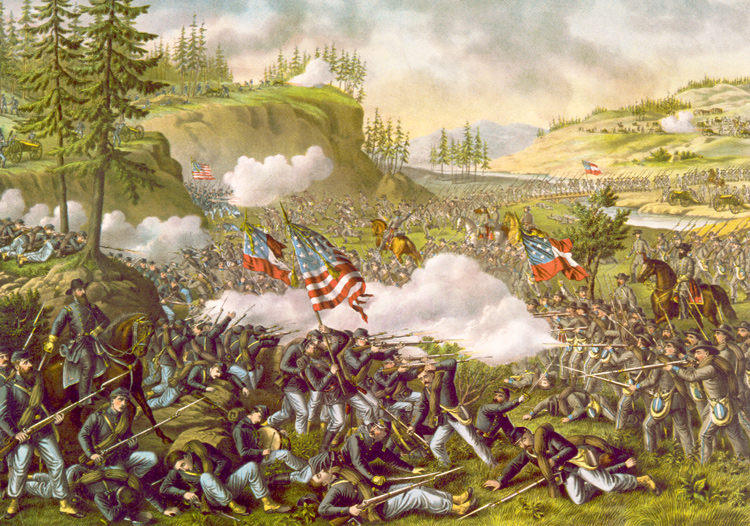Hurrah for the Hamilton Continentals!
Have you heard of the Hamilton Continentals? They were not some traveling baseball team, a barbershop quartet, or a defunct Indiana automaker from yesteryear. They were a militia group made up of young men from Hamilton County who volunteered to join the army on the eve of the American Civil War.
There were 2.1 million Union soldiers and 1.1 million Confederates who fought in the Civil War. The veterans of this war were overwhelmingly made up of volunteers. Most of them had not been trained in the tactics of war before April 12, 1861, when Fort Sumter fell and four years of conflict commenced.
Just before the war began, the Hamilton Continentals were formed. This group gathered in and around Noblesville to ready themselves for a fight.
Why did they do so? They were reading the signs of the times they were living in.
For instance, 11 years prior to the start of the war, the highly controversial federal law known as the Fugitive Slave Act was put in force. It allowed bounty hunters from slave-holding states to cross into free states, like Indiana, to recapture runaway slaves and return them to their masters without interference from either the state authorities or individual citizens. In response to this, Indiana passed a law that banned any black or half-black person from entering, passing through or settling in the state, whether they be free or slave. These laws sharply divided people. Hamilton County residents, especially those of the Quaker faith, had been active in helping runaway slaves attain freedom. Now they were in violation of the law.
In response to the Fugitive Slave Act, militias for and against slavery were formed in places across the nation. Seven years before the Civil War, when the Kansas-Nebraska Act of 1854 allowed residents of the Kansas Territory to vote to allow or ban slavery in their state, these militia groups clashed with each other. In a prelude to things to come, Bleeding Kansas saw radical abolitionist Jayhawks go to war with proslavery Missouri Border Ruffians. Towns were terrorized, businesses were set ablaze, and people were killed over the issue.
As unrest over the issue of slavery spread, the Republican Party was formed as an anti-slavery political party. They were formed in 1854 and put up their first presidential candidate in 1856. John C. Fremont was a radical abolitionist who campaigned for the end of slavery. Leaders of southern states insisted that if Fremont won the presidency, they would leave the Union. Fremont lost to Democrat James Buchanan. Buchanan was a hapless president.
That set up the next presidential election in 1860, when Republican Abraham Lincoln defeated three Democrats to become the 16th U.S. president. Lincoln received death threats before he ever stepped foot in Washington. Before he was inaugurated, seven states had already left the Union to form the Confederate States of America.
A little more than a month after his presidency began, on April 12, 1861, a South Carolina militia fired upon Fort Sumter in Charleston harbor. Three days later, Lincoln issued a call to arms for 75,000 volunteers. That is when the Hamilton Continentals left Noblesville and volunteered to become part of the first regiment of volunteers in Indiana.

The Hamilton Continentals were involved in some of the bloodiest battlefields in American history, such as the Battle of Chickamauga shown here. (Image courtesy Library of Congress)
As you make your way through the older cemeteries of Hamilton County, you will see the headstones of the Hamilton Continentals, although they are not marked with that name. They were part of the Indiana 6th Volunteer Regiment. Many of them re-enlisted with other units as their initial service time ended. They are listed among the Indiana 39th Infantry, the Indiana 8th Cavalry, the Indiana 75th Infantry, among others. Their service took them to places that are etched in the historical register as some of the bloodiest battlefields in American history – Shiloh, Stone’s River, Chickamauga, Chattanooga, Atlanta and others.
As Independence Day is approaching, take a moment to stroll through an old cemetery and stop to honor the men of Hamilton County who volunteered to join a war that changed our world.
If you are interested in more information, Kevin Yaney is leading a Civil War Veterans Walking Tour at Riverside Cemetery at 10 a.m. on Saturday, July 6. The event is free, but you need to register at CivilWarVeteransWalkingTour.com.

